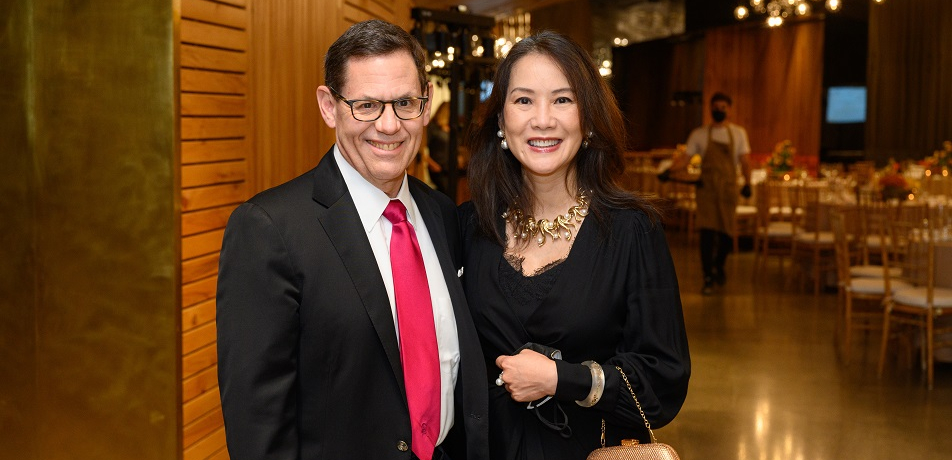A quantum leap for the Frontiers building
Dr. Mark Alexander is helping to lay the foundation for the physics of the future
People behind the science

Dr. Mark Alexander and Yee Wah Gregoire
The Weizmann Institute’s Frontiers of the Universe flagship project—which aims to transform our understanding of how the Universe works, from the tiniest subatomic particles to the largest galaxies—recently received a major boost from longstanding American Committee leader and Board member Dr. Mark Alexander. On behalf of the Norman E. Alexander Family M Foundation, the New York-area International Board member made a magnanimous pledge to support the construction of the state-of-the- art Frontiers building, allowing the Institute to break ground and begin erecting the new facility on campus.
One of the Institute’s largest and most ambitious projects to date, Frontiers will bring Weizmann’s brightest physicists and astrophysicists together under one roof, within six centers of excellence— providing them with the tools and resources they need to contribute new insight into the central questions of physics, develop new technologies with wide-ranging practical applications, and inspire and educate a new generation of young scientists in Israel.
Upon receiving an honorary PhD from the Institute in the fall, Dr. Alexander reflected on his personal interest in exploring outer space: “As a kid, I always wanted to be an astronaut, but needless to say, that never happened. And yet, over 50 years later, here I’m given the opportunity to participate in the amazing Frontiers of the Universe project.”
The Weizmann Institute is deeply grateful to Dr. Alexander for this tremendous gift, which names the building—the latest in a long list of visionary and impactful donations from the Norman E. Alexander Family M Foundation, including contributions to ULTRASAT (an innovative, Weizmann-designed satellite within the Frontiers framework), the Weizmann Coronavirus Response Fund, and the establishment of a wing in the new André Deloro Building for Advanced and Intelligent Materials, which will support quantum chemistry research.